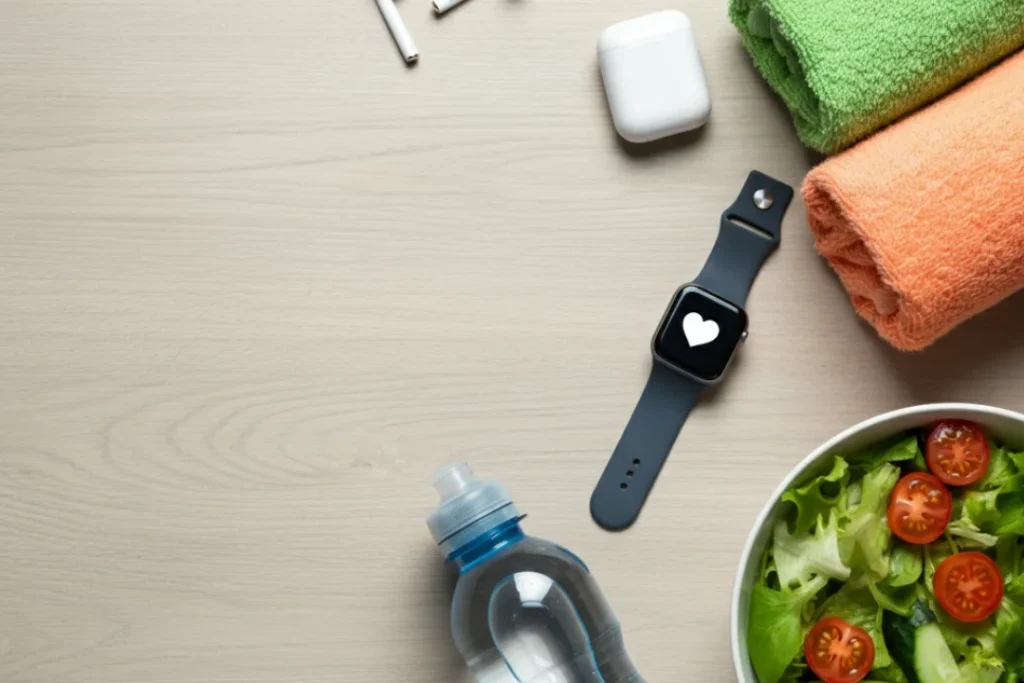Taking the first steps toward a healthier lifestyle can be a little intimidating. With so much information everywhere, it’s tough to know what actually works and where to start. The truth is, you don’t need a total life overhaul to live better—you just need a few small changes that you can keep up with. This guide walks you through what “a healthy lifestyle for beginners” really means and how you can build habits that last.
In simple terms, what is a healthy lifestyle for beginners? It means choosing balance—eating well, moving your body, sleeping soundly, and finding ways to feel good mentally and emotionally. Let’s break this down together.
Understanding What a Healthy Lifestyle Means
A lot of people think getting healthy means giving up everything you love. But in reality, creating healthy routines starts with how you think. It’s about feeling better, not punishing yourself or chasing perfection. Everyone’s journey looks a little different, and that’s okay.
Mindset Matters Most
Changing how you see health makes all the difference. Rather than zeroing in on the things you “shouldn’t” do, try noticing what you can add. Can you include more veggies? Walk your dog an extra block? Spend a minute breathing deeply when you’re stressed? Celebrate the little wins.
Start Small for Real Progress
Don’t feel like you have to run a marathon next month or cut out entire food groups right away. Small steps are more likely to stick. Swap soda for water a few times a week or try a new healthy recipe. Over time, these tweaks add up and you start to notice the change.
Nutrition Basics: Eating Well Made Simple
Eating healthy isn’t as complicated as it sometimes seems. The main idea is to go for foods that are wholesome and as close to their natural state as possible. Here are some simple strategies you can use:
- Eat the Rainbow: The more colors (from fruits and veggies) on your plate, the more nutrients you’re getting.
- Go for Whole Grains: Brown rice, oats, or whole grain bread keep you fuller than processed options.
- Add Protein: Chicken, fish, tofu, and beans help keep you satisfied and build muscle.
- Drink Water: Most of us don’t drink enough. A glass of water with each meal is a great start.
Move Your Body, Your Way
Physical activity isn’t just about weight loss—it boosts your mood, your energy, and your overall well-being. The good news? You don’t need fancy equipment or expensive gym memberships.
Find What You Enjoy
You’re much more likely to keep moving if you actually like what you’re doing. Maybe it’s dancing, hiking, gardening, or playing with your kids. Even a short walk counts. Try different things to see what clicks.
Sleep and Stress: The Missing Pieces
Getting enough rest and managing stress are just as important as diet and exercise. Skimping on sleep or being stressed all the time can make healthy living much harder.
Try these tips to improve sleep and lower stress:
- Consistent Bedtimes: Stick to a regular sleep schedule—even on weekends.
- Less Screen Time at Night: Put your phone away at least 30 minutes before bed.
- Relaxation Rituals: Try deep breathing, reading, or stretching before sleeping.
Before You Make Big Changes, Check In
Thinking about starting a new workout program or making big changes to your diet? It’s smart to check with your doctor or a registered dietitian first. They’ll help you make sure your new routine is safe and fits your personal health needs.
Conclusion: Healthy Habits, One Step at a Time
Ultimately, the answer to building a healthier lifestyle as a beginner comes down to finding what works for you. There’s no single recipe for health, but small, steady changes make a big impact over time. Be kind to yourself, notice and celebrate every bit of progress, and focus on building habits that feel good. You’re not just working on your body—you’re building a life you enjoy. If you’re looking for extra motivation or expert advice, the Harvard T.H. Chan School of Public Health offers practical tips and resources on long-term wellness.
FAQs
1. How long does it take to form a healthy habit?
It’s different for everyone, but most new habits take a few weeks to a few months to stick. The key is to keep going, even if progress feels slow.
2. Do I have to track every calorie to be healthy?
No, you don’t! Paying attention to your hunger cues and focusing on eating balanced meals is a solid approach for beginners.
3. What exercise is best for a beginner’s healthy lifestyle?
Choose activities you like and will keep doing—walking, swimming, yoga, or dancing are all great. Doing something is always better than nothing.
4. How can I stay on track when I want to quit?
Remember why you started and celebrate small wins. Sometimes a friend or a little reward can make a big difference in keeping you motivated.
5. Is it okay to enjoy treats or “unhealthy” foods?
Absolutely. Living healthy means balance, so it’s fine to enjoy treats occasionally. The big picture matters more than any one meal.
You may also read:Unlock a Healthier You: The Best Daily Habits for Better Health



